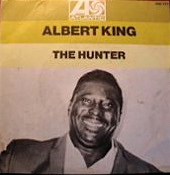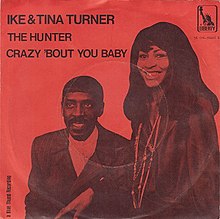
Ike & Tina Turner were an American musical duo consisting of husband and wife Ike Turner and Tina Turner. From 1960 to 1976, they performed live as the Ike & Tina Turner Revue, supported by Ike Turner's band the Kings of Rhythm and backing vocalists called the Ikettes. The Ike & Tina Turner Revue was regarded as "one of the most potent live acts on the R&B circuit."
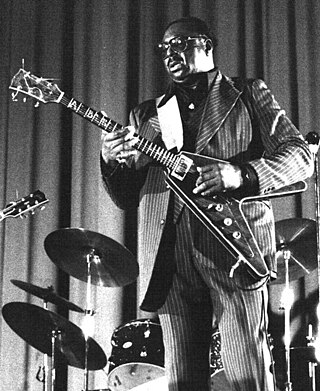
Albert Nelson, known by his stage name Albert King, was an American guitarist and singer who is often regarded as one of the greatest and most influential blues guitarists of all time. He is perhaps best known for his popular and influential album Born Under a Bad Sign (1967) and its title track. He, B.B. King, and Freddie King, all unrelated, were known as the "Kings of the Blues". The left-handed Albert King was known for his "deep, dramatic sound that was widely imitated by both blues and rock guitarists."
Bonny "Mack" Rice, sometimes credited as Sir Mack Rice, was an American songwriter and singer. His best-known composition and biggest hit as a solo performer was "Mustang Sally". He also wrote "Respect Yourself" with Luther Ingram.

James Milton Campbell Jr., better known as Little Milton, was an American blues singer and guitarist, best known for his number-one R&B single "We're Gonna Make It". His other hits include "Baby, I Love You", "Who's Cheating Who?", and "Grits Ain't Groceries ".
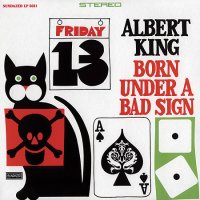
Born Under a Bad Sign is the second compilation album by American blues musician Albert King, released in August 1967 by Stax Records. It features eleven electric blues songs that were recorded from March 1966 to June 1967, throughout five different sessions. King played with two in-house bands: Booker T. & the M.G.'s and the Memphis Horns. Although the album failed to reach any music chart, it did receive positive reviews from music critics and is often cited as one of the greatest blues albums ever made. Born Under a Bad Sign influenced many guitarists, including Eric Clapton, Mike Bloomfield, Jimi Hendrix, and Stevie Ray Vaughan. Born Under a Bad Sign has been recognized by several music institutions, and has been inducted into the Blues Foundation Hall of Fame, the Grammy Hall of Fame, and the National Recording Registry.
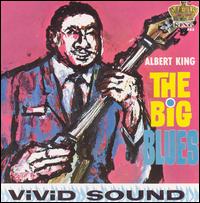
The Big Blues is a compilation album by Albert King, released by King Records in 1962. It is his first album and the only one before he signed with Stax Records, where he would record most albums during his career. The album was later reissued under the title Travelin' to California.

"I've Been Loving You Too Long" (originally "I've Been Loving You Too Long (To Stop Now)") is a soul music ballad written by Otis Redding and Jerry Butler. Considered by music critics and writers to be one of Redding's finest performances and a soul classic, it is a slow, emotional piece with Redding's pleading vocals backed by producer Steve Cropper's arpeggiated guitar parts and a horn section.
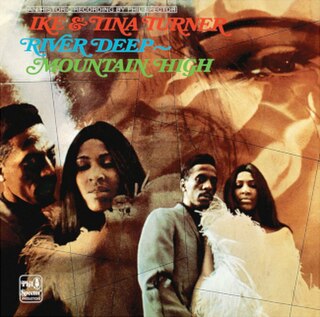
River Deep – Mountain High is a studio album by Ike & Tina Turner. It was originally released by London Records in the UK in 1966, and later A&M Records in the US in 1969. In 2017, Pitchfork ranked it at No. 40 on their list of the 200 Best Albums of the 1960s.

This article contains information about albums and singles released by the American musical duo Ike & Tina Turner.
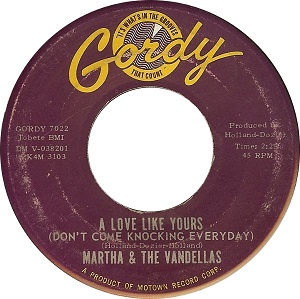
"A Love Like Yours (Don't Come Knocking Everyday)" is a 1963 song issued as the B-side to Motown singing group Martha and the Vandellas' hit single, "Heat Wave", released on the Gordy label.
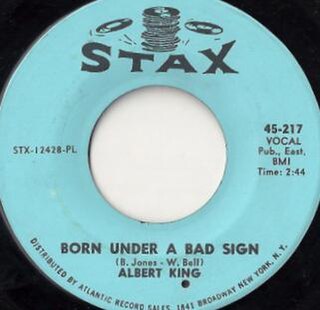
"Born Under a Bad Sign" is a blues song recorded by American blues singer and guitarist Albert King in 1967. Called "a timeless staple of the blues", the song also had strong crossover appeal to the rock audience with its synchronous bass and guitar lines and topical astrology reference. "Born Under a Bad Sign" appeared on the R&B chart and became a blues standard.

"Going Up the Country" is a song adapted and recorded by American blues rock band Canned Heat. Called a "rural hippie anthem", it became one of the band's biggest hits and best-known songs. As with their previous single, "On the Road Again", the song was adapted from a 1920s blues song and sung by Alan Wilson.
Albert King (1923–1992) was an American blues guitarist and singer who was active from the late 1940s to 1992. During the earlier part of his career, he recorded several singles for smaller record labels. In 1966, he began an association with Stax Records, where he enjoyed his greatest commercial success with both singles and albums. His 1967 album, Born Under a Bad Sign, has been acknowledged as one of the most important blues albums.

Josephine Armstead, also known as "Joshie" Jo Armstead, is an American soul singer and songwriter. Armstead began her career singing backing vocals for blues musician Bobby "Blue" Bland before becoming an Ikette in the Ike & Tina Turner Revue in the early 1960s. She also had some success as a solo singer, her biggest hit being "A Stone Good Lover" in 1968. As a songwriter, Armstead teamed up with Ashford & Simpson. The trio wrote hits for various artists, including Ray Charles, Aretha Franklin, Tina Britt, Ronnie Milsap, and Syl Johnson. In the 1970s, Armstead appeared in the Broadway musicals Don't Play Us Cheap and Seesaw.

King of the Blues Guitar is a compilation album by American blues guitarist and singer Albert King, released by Atlantic Records in 1969. The album contains songs that Stax Records originally released on singles, including five that were also included on King's 1967 compilation, Born Under a Bad Sign. It reached number 194 on the Billboard 200 album chart in 1969.
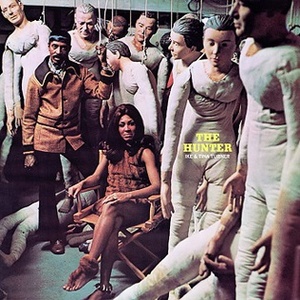
The Hunter is a studio album by Ike & Tina Turner released on Blue Thumb Records in 1969.

"Bold Soul Sister" is a song by R&B duo Ike & Tina Turner from the album The Hunter. The song features electric blues guitarist Albert Collins. It was released as the B-side to the single "I Know" in October 1969.
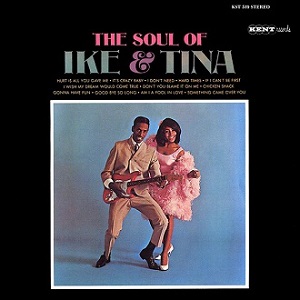
The Soul of Ike & Tina is a compilation album by R&B duo Ike & Tina Turner. Not to be confused by their 1961 debut album, The Soul of Ike & Tina Turner, this album was released by Kent Records in 1966.

This article contains information about albums and singles released by of American musician and bandleader Ike Turner.

Ernest Ray Lane was an American blues pianist. He played various blues musicians and bands, including with Pinetop Perkins, Robert Nighthawk, Ike Turner, George "Harmonica" Smith, and Canned Heat. Lane also released singles and album as a solo artist.
